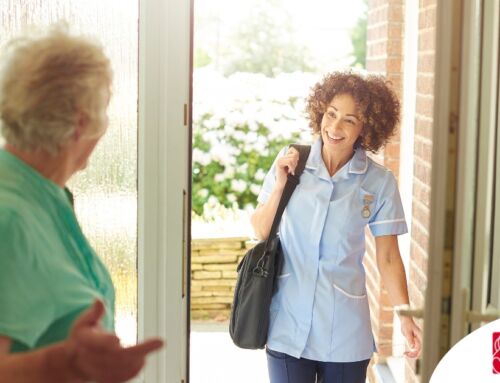Here in North America, it’s wintertime. For many of us this means snow and ice and various cold weather risks. Outside of falls, are there health or safety risks that are higher for seniors? What can be done to take care during this season?
Wintertime Risks for Seniors
Falls
Of course, for all of us, the risks of falling outside on the ice or snow is increased during the winter. But for seniors who may have slower reflexes, less balance, impaired vision or muscle weakness, this risk is increased exponentially.
TIPS:
- Use delivery services for things like medications and groceries
- Invest in proper, sturdy cold weather shoes and walking stick or cane
- When walking outside, always be in company of a companion
Winter Blues
With grey skies and colder weather, it’s very common to feel a little “down” during the winter. But did you know there is a difference between just feeling down and SAD (Seasonal Affective Disorder)?
Seniors who suffer from isolation and depression are at higher risk throughout the winter. Combine that with holiday and post-holiday depression and it can be a very difficult time for some seniors.
TIPS:
- Get educated on the difference between the “blues” and SAD or ongoing depression. Click here for more information.
- Get SOCIAL! Spend time with friends, family or caregivers. Even virtually (online) if you can. Human connection can make all the difference in the wintertime
- Speak with your family doctor if you feel depressed or lonely or even if you have any general questions about wintertime blues
High Blood Pressure
Regardless of age, blood pressure is generally higher in the winter (cold weather) and lower in the summer. The Mayo Clinic also indicates, “In addition to cold weather, blood pressure may also be affected by a sudden change in weather patterns, such as a weather front or a storm. Your body — and blood vessels — may react to abrupt changes in humidity, atmospheric pressure, cloud cover or wind in much the same way it reacts to cold. These weather-related variations in blood pressure are more common in people age 65 and older.”
For anyone who is managing high blood pressure, this is good information to know. Speak with your doctor about if there is anything special you should be doing in the winter to manage your high blood pressure.
TIPS:
- Hire a service to shovel walkways and driveways
- Only begin a new exercise routine under medical supervision
Heart Related Issues
Because cold weather affects blood pressure and causes an extra strain on the heart, the risks of heart attack are higher in the cold weather. The heart has to work harder to keep the body warm when outside, so be sure to wear appropriate winter clothing when outside.
TIPS as per Northwestern Medicine:
- Stick to a heart-healthy diet
- Be sure to exercise regularly
- Know your blood pressure, cholesterol and blood sugar numbers, and work with your physician to keep them in normal range
- Take steps to manage stress
- Listen to your body and if you feel different, see your physician
Winter Illnesses
Respiratory illnesses can be extra challenging during the cold winter months. Risks for influenza, pneumonia, bronchitis, and now for Covid-19 are high for seniors with weakened immune systems. Speak with your doctor about appropriate prevention and vaccines.
TIPS:
- Eat well and stay hydrated
- Get moderate, indoor exercise
- Be sure to get enough rest
- Discuss possible nutritional supplements with your doctor
- Do not go out if you are not feeling well
- If you are more comfortable, continue to wear a mask when you leave your home
Hypothermia or Frostbite
Hypothermia and frostbite don’t just occur when you’re outside for too long. Individuals who have decreased blood flow, poor blood circulation, take beta blockers or have diabetes are at higher risk for hypothermia and frostbite.
TIPS:
- Keep your home heated to at least 64F (18C), higher if you feel cold
- Limit time outside when temperatures are low
- Keep bedroom windows closed at night – winter air at night is not great for respiratory health
Wrap Up
Not only does it feel good to bundle up, stay warm and safe throughout the winter, it’s smart! Understanding what risks increase during the winter and how you can minimize your personal risk will keep you safe all year long.
~ ~ ~
Do you have questions about how you can better support your loved one while they age in place in South Florida or regarding homecare in general? Please contact CareGivers of America here: Contact or call us toll free: 800-342-4197
To join our amazing mailing list where you’ll receive special content, click here.
*No information in this article is to be taken as advice, medical or otherwise. This post is not sponsored, but may contain external links to websites, articles or product examples. External links are used for example or refence purposes only and these links do not indicate specific product or website endorsement by CareGivers of America.





